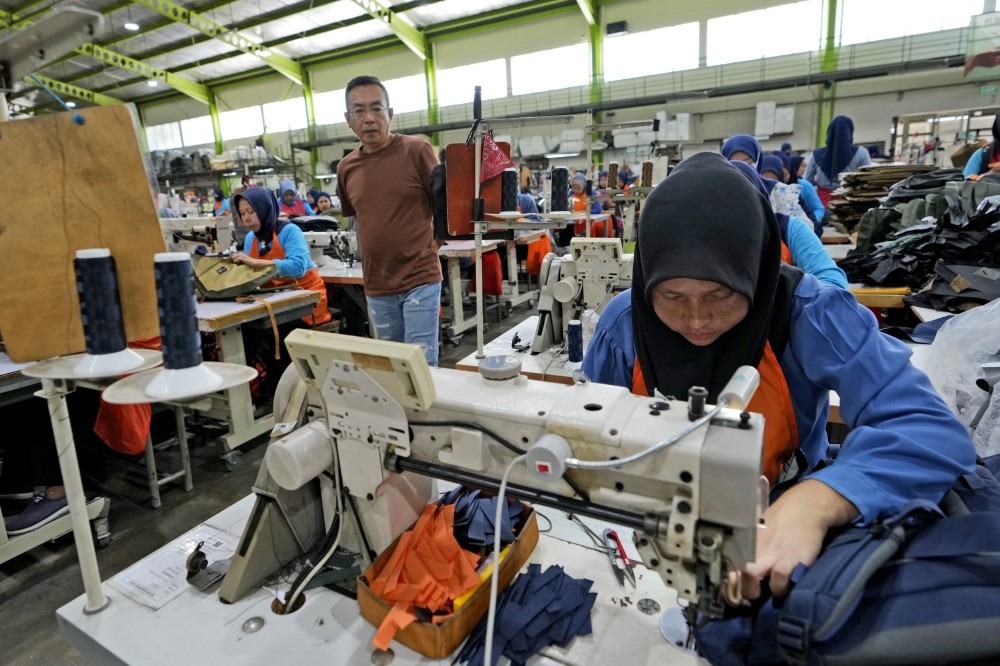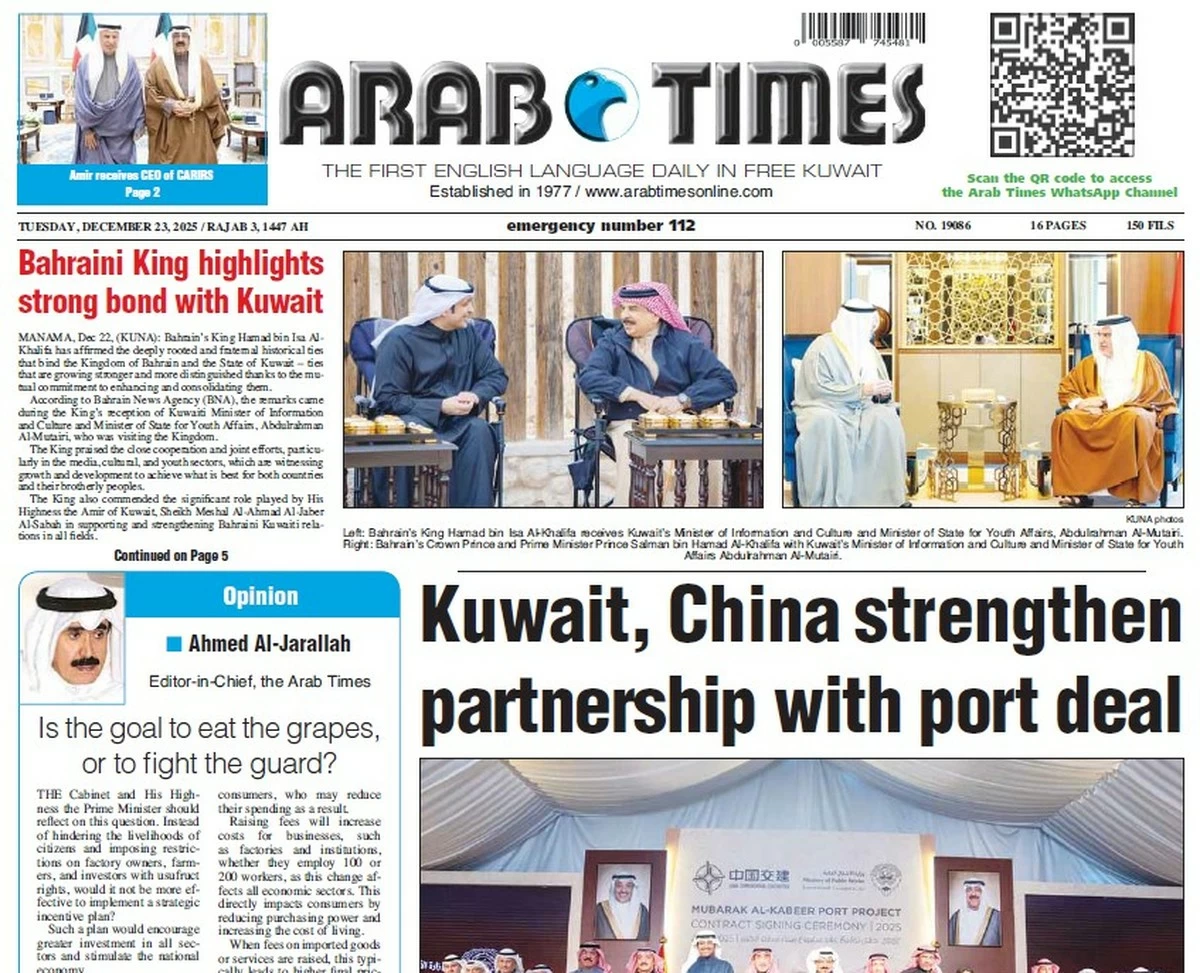21/08/2024
21/08/2024

JAKARTA, Indonesia, Aug 21, (AP): A flood of Chinese products into Indonesia has hit local manufacturers hard, prompting the government to look for ways to placate domestic producers while avoiding angering the country’s biggest trading partner.
Garment makers - both home-based piece work producers and factories - have appealed for help as they lose market share to low-cost apparel and textiles from China. A surge of products bought online has added to the problem.
A protest by workers in Jakarta prompted Indonesian Minister of Trade Zulkifli Hasan to announce in July that the government will impose import tariffs of up to 200% on some products from China, particularly textiles, clothing, footwear, electronics, ceramics and cosmetics, to try to protect local businesses and prevent layoffs.
"The United States can impose a 200% tariff on imported ceramics or clothes, so we can do it as well," Zulkifli said, to ensure micro, small, and medium-sized enterprises and industries "survive and thrive.”
But China is Indonesia’s largest trading partner, with two-way trade exceeding $127 billion in 2023. Imposing higher tariffs could prompt Chinese manufacturers to invest in more in factories in Indonesia, but could also backfire, leading Beijing to retaliate. As a result, the government announced in July that it was setting up a task force to monitor and handle problems related to certain imports.
It's an urgent matter, Hasan said, given the flood of imported products that has caused closures of textile factories and mass layoffs. From January to July 2024, at least 12 textile factories shut down operations, causing more than 12,000 workers to lose their jobs, according to the Nusantara Trade Union Confederation.
In Bandung district in Indonesia’s West Java province - an area famous for textiles such as batiks, handwoven fabrics and silks - imports of Chinese products have left thousands of workers idle and without regular incomes, said Neng Wati, a manager at manufacturing company Asnur Konveksi.
"Now they take turns. The number of workers stays the same, but the work is divided up and not all get some. Some of them have been off for two weeks, some of them haven't gotten work for a month,” Wati said.


